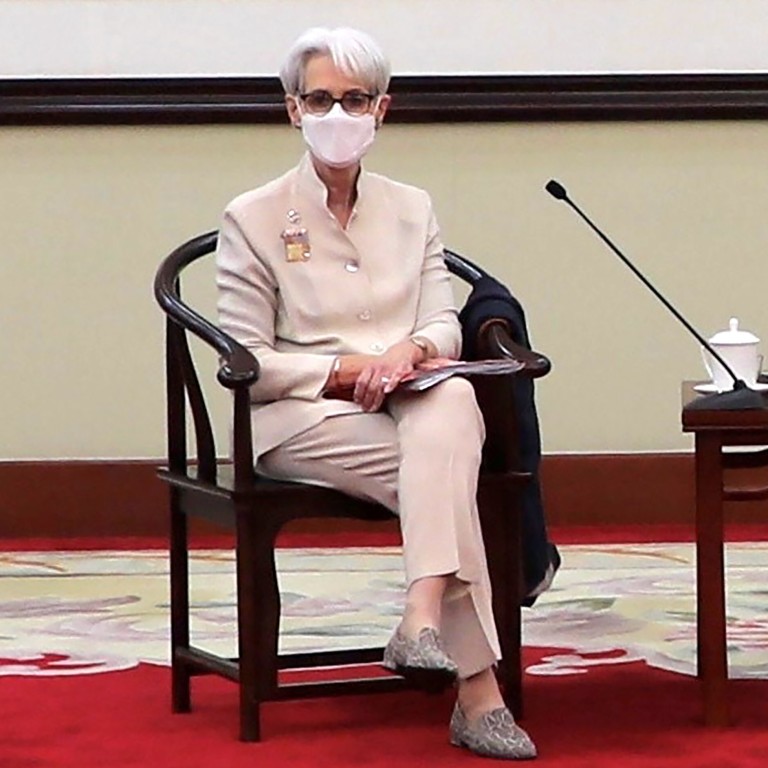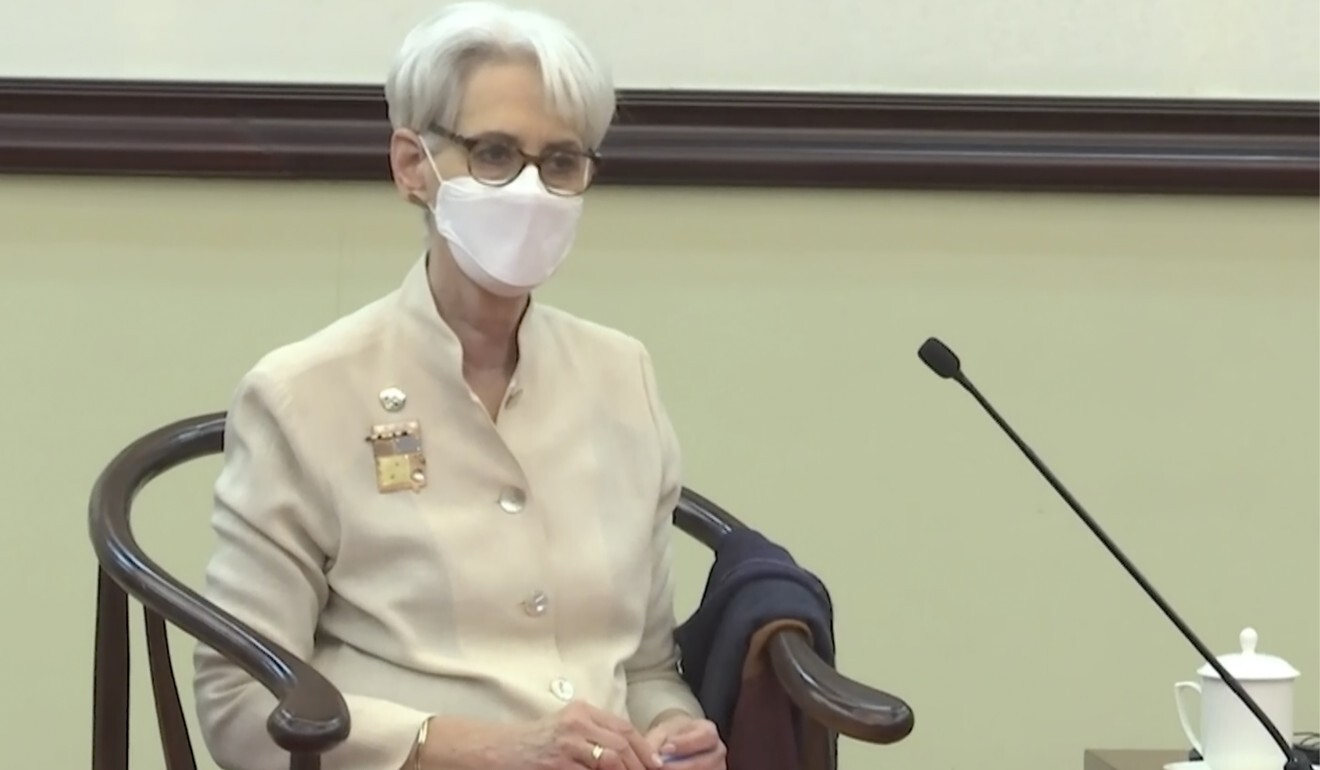
China, US draw lines in the sand at top-level meeting but agree to keep talking
- Both sides stick to their firm positions during Wendy Sherman’s stop in Tianjin but China says talks were candid and useful
- Sherman says US vows stiff competition but not conflict with China

“The deputy secretary and State Councillor Wang had a frank and open discussion about a range of issues, demonstrating the importance of maintaining open lines of communication between our two countries,” US State Department spokesman Ned Price said after the meetings.
Price said that in her meeting with Wang, Sherman vowed “stiff competition” with China but also stressed that the US “[did] not seek conflict” with Beijing.
Sherman said on Twitter that she spoke to Wang “about the United States’ commitment to healthy competition, protecting human rights and democratic values, and strengthening the rules-based international order that benefits us all”.
Why Tianjin? And what’s in store in China for US envoy Wendy Sherman?
A summary of Wang’s talk with Sherman posted to a Weibo account affiliated with state broadcaster CCTV said the foreign minister raised three demands with the second-ranking US diplomat: the United States must not challenge or seek to subvert China’s model of governance; it must not interfere in China’s development; and it must not violate China’s sovereignty or harm its territorial integrity.
Taiwan was the “most important” issue when it came to sovereign affairs, Wang was reported as telling Sherman. “We advise the US that it must abide by its promises on the Taiwan issue and must be prudent in its conduct,” he said, stressing that China reserved the right to use “any means necessary” to quell any provocations around independence.
“That is something he has long been an advocate for, and we expect there will be some opportunity to engage at some point, but it did not come up in the context of these meetings … that was not the purpose of these meetings.”
Sherman’s visit comes after rounds of negotiations over protocol, with Washington seeking greater access to Xi’s inner circle.
Xie began the Tianjin talks by going on the offensive, handing over the two lists to the US representative.
Items on the remedial list include lifting visa restrictions on Communist Party members, their families, and Chinese students; lifting sanctions imposed on Chinese leaders, government officials and agencies; and removing restrictions on Confucius Institutes and Chinese companies.
China promises US a ‘tutorial’ in how to treat other countries equally ahead of deputy secretary of state Wendy Sherman’s visit
China also wants end the requirement that Chinese journalists register as foreign agents in the US, and cancellation of a request to extradite Huawei Technologies chief financial officer Meng Wanzhou from Canada.
Items on the list of concerns include addressing unfair treatment of Chinese citizens in the United States, harassment of the Chinese embassy and its consulates, the rise of anti-Asian and anti-Chinese sentiment, and violence against Chinese citizens.
Xie also rebuffed the Biden administration’s mixed-signal approach to seek cooperation on limited areas while maintaining pressure on China on most fronts.

02:23
Gloves off at top-level US-China summit in Alaska with on-camera sparring
“We have stressed that the foundation and prerequisite for cooperation is mutual trust and mutual benefits, and a favourable atmosphere in bilateral relations is an essential requirement.
“The US … cannot expect cooperation on one hand and to hurt China’s interests on the other. This won’t work.”
“The foundational reason is that some people in the US are treating China as an ‘imagined enemy’,” it quoted him as saying.
“We urge the United States not to underestimate the strong determination, firm will and strong ability of the 1.4 billion Chinese people to safeguard national sovereignty, security and development interests,” state news agency Xinhua quoted him as saying.

02:06
Biden says G7 leaders agreed to call out China over human rights abuses in Xinjiang and Hong Kong
Xie also criticised the US government for engaging in “all-encompassing containment of China” to restrict the country’s development and to continue US hegemony.
He said some had sought to demonise China to distract from domestic problems in the US, likening the conflict between the two countries to the “Pearl Harbour moment” or the “Sputnik moment” – turning points for the US when it entered World War II after the Japanese attack and against the Soviet Union in the Cold War.
“The US side talks about China at every turn, and it seems as if it is unable to speak or do anything if it does not involve China,” he was quoted as saying. “We urge the US side to change its incorrect thinking and very dangerous policy towards China.”
Xie added that China was willing to engage the US as equals and to “seek common ground while reserving differences” and he urged the US to choose the path of “mutual respect, fair competition and peaceful coexistence”.
Wu Xinbo, director at the Centre for American Studies at Fudan University, said the meetings in Tianjin were essential for both sides to gauge each other’s intentions and bottom lines as they planned for the next stage of their rivalry and engagement.
Additional reporting by Sarah Zheng, Owen Churchill and Robert Delaney

